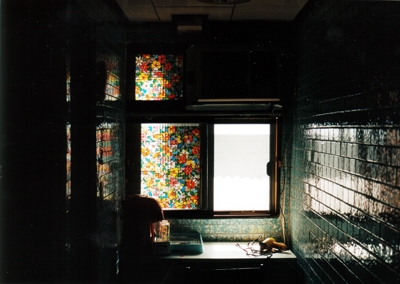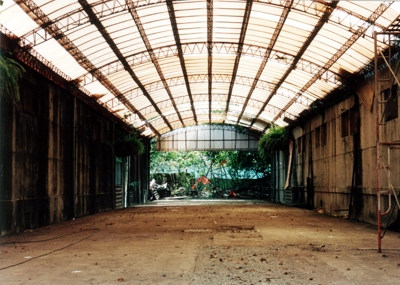

2001, 16 mm, colour, sound, 13 min.
In the culture of film, the employment of a number of technical devices within a "non-serial structure" - or one which is not immediately recognizable as such, and (ergo?) comprehensible as content rather than means of expression - has long been met with extreme suspicion: it would seem that the film maker has devoted himself to gluttony or failed to think long and hard enough about his true intention, or that he was just playing around at making a music video, etc. Of course, this is ridiculous in the same way as most methods of expression which are mistaken for laws.
Since different people often see the world in a wide variety of ways, it makes a great deal of sense and adds meaning to make distinctions when making it tangible. This is also a kind of transparency.
Bernhard Schreiner's Hwa-Shan District, Taipei is a finely articulated work: a veritable arsenal of devices - shifts in focus, fades, editing techniques (of course) - were used to make a certain place - Schreiner's place, in Taipei - suitable for a film. Hwa-Shan is - here and now - an industrial wasteland. Brush is slowly choking a brewery which was apparently closed long ago, like a subway tunnel at the end of which one can see the sections still in use. This is surrounded by everyday life focusing on a short-order restaurant. The visual devices are often more closely related to the texture of the sound-track than what is happening on the screen: tension is created, meaning is found, then compressed further into an experience, both emotion and life. The material nature of things, each one of them, is met with a respect both beautiful and appropriate.
Hwa-Shan District, Taipei was made during Schreiner's several-week stay in Taiwan, where he attended the "1999 Urban Flashes Anglo-Asian workshop, Taipei" as a member of the group "10 Uhr".
Olaf Möller
